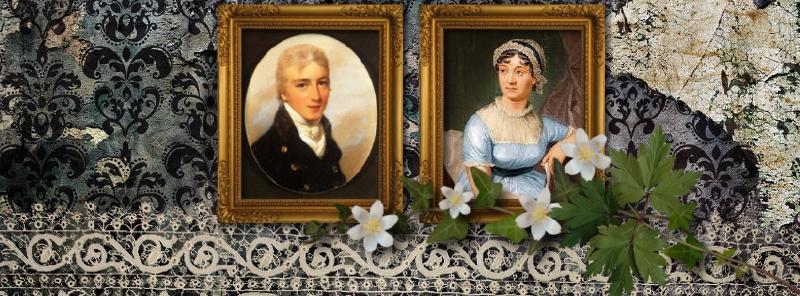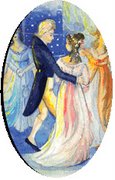This past week I had a "light-bulb" moment after viewing the movie
"Amazing Grace" about William Wilberforce's campaign against the British
slave trade which was abolished in 1807. I began to realize exactly
what that "trade" was all about, and it wasn't 'pretty'. This movie
actually happened during Jane's life time and she knew of the writer
Hannah More.
I was checking James Austen's periodical, "The Loiterer" that I put on line, for a quote and ran across this in Issue 23
subtitled "Vexations attending the pursuit, and possession of wealth, in a letter from Indicus.":
The Son of a Neighbour (very few years older than myself) about this time returned from the East-Indies,
with one of those sudden fortunes, which never fail to draw upon their
possessors the admiration of the Vulgar, the envy of the Weak, and the
pity of the Wise. — As we had been formerly Schoolfellows, and our
Families were still upon terms of great intimacy, I was one of the first
who were invited to a magnificent Villa, he had just purchased, on the
banks of the Thames, where one fortnight spent amidst the luxury of
fashionable dissipation, and the blaze of Oriental Grandeur, completely
turned my head, and determined me to waste no more time in this dirty Island,
but to go at once to that Country, were riches were so easily to be
acquired. It was to no purpose, my Friends attempted to oppose this
resolution: it had so entirely taken possession of my mind, that it
haunted my very Dreams. Sometimes I found myself carried in an elegant
Palanquin, attended by a long train of Blacks; and at others inclined at
my ease on a rich Sopha, while my careful Slaves drove away the
Mosquitoes with their fans. I now settled the accounts with my Circars, now counted imaginary Lacks, and admired the lustre of ideal Diamonds.
My
point being that James Austen used the terms "Blacks" and "Slaves". So
the Austens must have had some idea about that situation. However, I
am not at all sure what James means with the term "Lacks".
The
movie left me in tears and consternation at the ignorance of us
"Southerners" (in the U.S.) of the real circumstances of the People of
Africa. I am here to declare that slavery is
wrong and evil.
The complete Issue No. 23 gives us a good example of what should and should NOT be done with wealth. You may read it HERE.
Yrs aff'ly,
Linda the Librarian















































